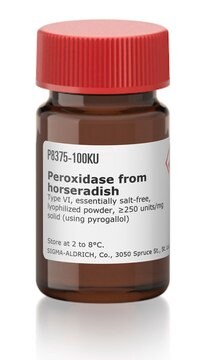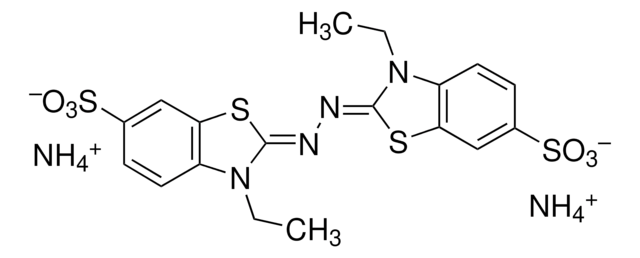40452
Laccase from Agaricus bisporus
powder, deep brown, ≥4 U/mg
Synonym(s):
Uroshiol oxidase
About This Item
Recommended Products
biological source
fungus (Agaricus bisporus)
form
powder
specific activity
≥4 U/mg
greener alternative product characteristics
Design for Energy Efficiency
Learn more about the Principles of Green Chemistry.
color
deep brown
greener alternative category
, Enabling
shipped in
wet ice
storage temp.
−20°C
InChI
1S/C9H13NO/c1-4-10-7(2)5-9(6-11)8(10)3/h5-6H,4H2,1-3H3
InChI key
NWDZDFOKSUDVJV-UHFFFAOYSA-N
Related Categories
General description
Application
Biochem/physiol Actions
Unit Definition
Signal Word
Danger
Hazard Statements
Precautionary Statements
Hazard Classifications
Resp. Sens. 1
Storage Class Code
11 - Combustible Solids
WGK
WGK 1
Flash Point(F)
Not applicable
Flash Point(C)
Not applicable
Personal Protective Equipment
Certificates of Analysis (COA)
Search for Certificates of Analysis (COA) by entering the products Lot/Batch Number. Lot and Batch Numbers can be found on a product’s label following the words ‘Lot’ or ‘Batch’.
Already Own This Product?
Find documentation for the products that you have recently purchased in the Document Library.
Customers Also Viewed
Our team of scientists has experience in all areas of research including Life Science, Material Science, Chemical Synthesis, Chromatography, Analytical and many others.
Contact Technical Service







